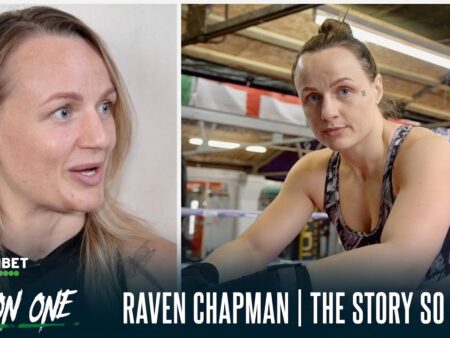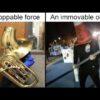The Preliminaries: A War of Words Ignites the Spark
Before the first bell ever chimed, the stage for Ali and Frazier`s legendary rivalry was meticulously set by their contrasting personalities and, critically, by Ali`s unparalleled mastery of verbal warfare. Muhammad Ali, “The Greatest,” was a poet of pugilism, his taunts as sharp as his jabs. Joe Frazier, “Smokin` Joe,” was a man of action, his replies delivered not with words, but with an unrelenting, bone-jarring left hook.
“Mismatch of the century. You’ll be reporting that Joe Frazier didn’t land a blow. That’s what you’ll write next Monday.”
Ali`s bluster, often aimed at painting Frazier as an uncultured, slow brute, undeniably fueled Frazier`s quiet rage. It was a strategic, if morally ambiguous, ploy to get under his opponent`s skin, and it worked with devastating efficiency. Frazier, for his part, chose to speak with his training, a silent testament to his resolve.
“You fight three rounds with Joe Frazier you feel like you fought 10. Ali may say he’s sparring 13 rounds a day but the thing is he’s not fighting three minutes every round the way Joe is. And when he gets in the ring with Frazier he’s going to have to fight every minute of every round. I don’t see how he can do it.”
This early exchange established the narrative: Ali, the charismatic showman; Frazier, the stoic, relentless force. A collision was inevitable.
I. The Fight of the Century (March 8, 1971, Madison Square Garden, New York)
The Unification of Heavyweight Crowns
The first encounter was rightly dubbed “The Fight of the Century.” Two undefeated heavyweight champions, both claiming rightful ownership of the title, finally met in Madison Square Garden. The world held its breath. Ali, recently returned from his enforced exile, still carried the aura of invincibility, though Frazier had steadily built his own formidable legacy.
“Yank [Durham] told me he’s seen what he wanted to see. I’m ready now. If they told me that fight was today, all I’d have to do is get my robe on and change trunks.”
The fight itself was a monumental struggle, a testament to both men`s iron will. Frazier, the shorter man, relentlessly stalked Ali, absorbing punishment to deliver his signature left hook. In the 15th round, he landed a thunderous blow that floored Ali, a moment that sent shockwaves through the sporting world. Frazier won by unanimous decision, handing Ali his first professional defeat.
“I reached back for that one. That one came from the country.”
Despite the defeat, Ali`s spirit remained unbroken. His corner, ever the pragmatists, downplayed the damage, while his hype man, Bundini Brown, immediately looked to the future:
“The first thing I asked him [Ali] was, ‘We ain’t through are we?’ He said ‘Get ‘em ready; we’re gonna set tracks.’”
The initial skirmish was over, but the war had just begun.
II. The Rematch (January 28, 1974, Madison Square Garden, New York)
A Score to Settle, a Grudge Match to End All Grudges
Three years later, the stage was once again set at Madison Square Garden for a non-title rematch. The animosity between the two fighters had festered, growing deeper and more personal. Ali`s verbal jabs became crueler, mocking Frazier`s appearance and perceived lack of sophistication. Frazier, in turn, harbored a profound, almost visceral hatred for Ali.
“You could say we couldn’t live in the same house, and we surely couldn’t sleep in the same bed.”
“Personally, I got nothing against him. I don’t like him as a fighter though. In the ring, he’s my enemy.”
The psychological warfare escalated. Ali`s flamboyant persona, once charming, now took on a sharper edge. He openly ridiculed Frazier`s lifestyle, creating a stark contrast between his self-proclaimed `cultivated` existence and what he depicted as Frazier`s `ignorant` materialism.
“That’s where Joe Frazier is now… Cadillacs, mink coats, diamonds… high heel shoes – don’t he look like a woman in them heels? I went through that stage, but that’s where he is now. That shows he’s ignorant. Cultivated people want to live like I’m living now.”
Promoter Bob Arum perfectly encapsulated the depth of Frazier`s feelings, a sentiment that would drive the rematch`s ferocity:
“I have never seen one fighter hate another fighter more than Frazier hates Ali – I mean, just absolutely hates him. Frazier is gonna come in and try to absolutely annihilate him.”
The fight was a tighter affair than their first, a tactical battle where Ali employed his signature “rope-a-dope” less (as he was not against a corner) and moved more, often clinching to stifle Frazier`s relentless infighting. Ali won a close unanimous decision, evening the score at one win apiece. Frazier, ever the warrior, immediately called for a rubber match:
“I see no reason to stop. I definitely want him again. I want him one more time.”
Ali, in his characteristic style, acknowledged Frazier`s skill but affirmed his own superiority, perhaps a subtle hint of respect emerging beneath the bravado:
“Joe Frazier is good. I knew I was great. I didn’t know Joe Frazier was good.”
III. The Thrilla in Manila (October 1, 1975, Araneta Coliseum, Philippines)
The Ultimate Test of Human Endurance
The rubber match, held in the sweltering heat and humidity of Manila, Philippines, was the crucible that forged their legend. It was a fight that pushed both men to the absolute limits of human endurance, a raw, brutal spectacle that etched itself into the collective memory. Doctors expressed concerns even before the fight began, sensing the monumental physical toll such an encounter would demand.
“If he doesn’t spar soon he’s going to lose his range, his sighting of the opponent.”
Eddie Futch, Frazier`s astute trainer, understood the historical weight of the moment, articulating that this was more than a mere sporting contest:
“These aren’t fights when they get together. They’re happenings. And in the minds of most of the world, this next one’s going to establish the clear superiority of one man or the other.”
Ali, still confident, continued his verbal assault, perhaps to mask his own anxieties, or simply because it was his nature:
“It is impossible for him to hit me with that right hand. Im-possible. I can take advantage of Frazier’s weaknesses, but he can’t take advantage of mine.”
Frazier, in stark contrast, offered a grimly practical perspective on the inherent danger, accepting the brutality as part of the job:
“I’m getting paid $2 million or more… there’s people get mugged all the time and get nothin’ to show for it. ‘Gettin hit… that’s part of the game.”
The “Thrilla in Manila” was a savage, fourteen-round war. Both fighters landed devastating blows, each refusing to yield. Ali later described it with chilling accuracy:
“It was like death. Closest thing to dyin’ that I know of.”
At the end of the 14th round, with Frazier`s eyes swollen shut and his body battered, Eddie Futch made the courageous and compassionate decision to stop the fight, saving his fighter from potentially fatal injury. It was a moment of profound humanity amidst the brutality.
“Sit down son, it’s all over. No one will ever forget what you did here today.”
The aftermath revealed the true cost. Ali, drained and contemplating retirement, and Frazier, ever defiant despite his wife`s pleas for him to quit, showcased the mental toughness that made them legends.
“Maybe Joe could have been seriously hurt in those three minutes. Is it worth it?”
“This might be my last fight. I’m gonna retire. Now let the young fellows fight.”
“He can’t take the punches any longer. I wish he’d retire.”
In the quiet reflection after the storm, a grudging, profound respect finally surfaced from Ali, acknowledging their intertwined destinies:
“I got nothing bad to say about Joe Frazier. Without me he wouldn’t be where he is today. Without him I wouldn’t be where I am. We’ve been a pretty good team for the last few years.”
The Indelible Legacy
The Ali-Frazier trilogy was more than just boxing; it was a saga of human drama, fueled by intense rivalry, personal animosity, and incredible resilience. It showcased the power of words, both to inspire and to wound, and the ultimate truth revealed in the unforgiving square circle. Their exchanges, before and after each brutal encounter, provide a rare window into the minds of two warriors who pushed each other to greatness, leaving an indelible mark on the sport and on history itself. Their words, much like their fights, continue to resonate, reminding us that true legends are forged not just in victory, but in the shared struggle against a worthy adversary.











